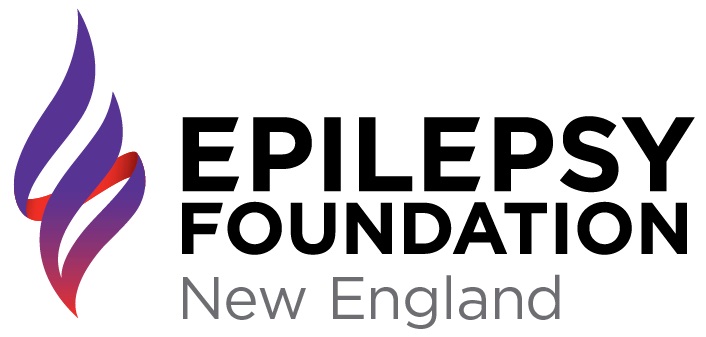What Is Refractory Epilepsy?
Sometimes described as "uncontrolled," "intractable", or "drug resistant" seizures, refractory epilepsy presents specific challenges to individuals striving for the goal of “no seizures” as the best possible control for epilepsy.
As many as two out of three patients treated for epilepsy experience refractory seizures, which are either not responsive to therapy or for which the seizures or side effects from treatment are troublesome enough to interfere with their quality of life.
In some cases, an individual’s epilepsy may become resistant to their existing medications, causing seizures to occur despite the proper medication being taken. In other cases, the therapy may be effective at preventing seizures but may cause such disruption or damage to quality of life that compliance with treatment becomes especially difficult.
What Causes Refractory Epilepsy or Uncontrolled Seizures?
Broadly speaking, uncontrolled seizures can be linked to four major causes which may facilitate uncontrolled seizures:
- An incorrect diagnosis
- The wrong treatment methods
- Triggers or lifestyle factors that may affect seizure control, despite the best treatment
- Properly diagnosed seizures not responding to the best treatment options
However, it is important to remember that not all uncontrolled seizures are considered refractory. If a different treatment option can help bring seizures under control, or if lifestyle factors or triggers that affect seizure control can be avoided, that person’s seizures would not be considered refractory.
How Do I Know If My Diagnosis is Incorrect?
Imagine receiving treatment to control seizures that significantly impacts your quality of life, only to find out that the symptoms being diagnosed were not seizures at all.
It’s not that unbelievable. According to one study by Smith and colleagues in England, as many as 13 percent of patients referred for refractory epilepsy did not have epilepsy at all. That’s why it’s always key to first ask, “Are these episodes truly seizures, or something else?”
Several common imitators of seizures, which can trigger an incorrect diagnosis, may include:
- Fainting (syncope)
- Panic attacks
- Migraines, coupled with confusion
- Hypoglycemia (low blood sugar)
- Fluctuating problems with body metabolism
- Mini-strokes (transient ischemic attacks or TIAs)
- Sleep disorders (narcolepsy and others)
- Movement disorders (tics, tremors, dystonia)
- Nonepileptic (psychogenic) seizures
In many cases, and experienced clinician can conduct physical examinations and laboratory tests which, when coupled with a thorough analysis of a patient’s medical history, can help determine whether or not an individual’s seizure-like symptoms are in fact seizures, and if they are truly refractory.
How Do I Identify An Incorrect Treatment?
For some individuals living with refractory epilepsy, the cause may be linked to incorrect treatment methods being used to treat correctly diagnosed seizures.
Several common reasons for incorrect or suboptimal treatment of seizures can include:
- Using the wrong medication. Different types of seizures may begin in different parts of the brain, or elicit different symptoms. Some medications used to treat certain types of seizures may not be effective at treating other types, which can affect seizure control.
- Incorrect or inadequate doses of medication. How a person responds to a particular medication relies on many individual factors, and what may be considered too high of a dosage in one person may be too low of a dosage in another. Taking too much of a medication can amplify side effects, while too little can lead to uncontrolled seizures.
- Polypharmacy and toxicity. Some people require multiple medications to control their epilepsy, and interactions between different medications can lower the efficacy of some medications, increase side effects, and affect seizure control.
- Missed doses of medication (or poor compliance with treatment). Although keeping track of medications can be difficult for some people, missing doses or failing to fully comply with treatment can cause breakthrough seizures and affect seizure control.
- Lifestyle habits and complicating factors. Precipitating factors like illness, lack of sleep, use of drugs and alcohol, extreme stress, and the menstrual cycle can significantly affect seizure control in many individuals.
What Can I Do About Refractory Epilepsy?
Besides requiring additional medical evaluation, patients with refractory seizures may benefit from education about seizure triggers and medication management.
A research project funded by the Centers for Disease Control (Pugh et al, Neurology 2007;69:2020-7) developed a set of quality care measures pertaining to patients with refractory seizures. The following actions were rated as both valid and necessary indicators of quality care for patients with refractory seizures.
- IF the diagnosis or seizure type remains unclear after the initial evaluations or the patient has recurrent seizures THEN the patient should be referred to the next highest level of epilepsy care.
- WHEN a patient with epilepsy receives follow-up care, THEN an estimate of the number of seizures since the last visit and an assessment of drug side effects should be documented.
- IF the patient reports unacceptable side-effects from AED monotherapy, THEN an alternative AED should be started (with carefully planned crossover).
- IF use of at least two different AED monotherapies has not resulted in seizure freedom, THEN referral for more highly specialized epilepsy care is indicated.
- IF a person with epilepsy is found to have evidence of a mood disorder (e.g., depression, anxiety) THEN s/he should receive treatment or a referral for mental health care.
- IF the patient continues to have seizures after initiating treatment THEN interventions should be performed.
Options include:
- Compliance assessment/enhancement
- Monitor AED blood levels
- Increase AED dose
- Change AED
- Patient education re: lifestyle modification
- Referral to higher level of epilepsy care

